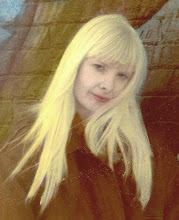 Jim Edward "Fibber McGee" Jordan
Jim Edward "Fibber McGee" JordanBirth: Nov. 6, 1896
Death: Apr. 1, 1988
Death: Apr. 1, 1988
Actor and Radio personality. He is best remembered in the comic role of Fibber McGee of "Fibber McGee and Molly" (1935-1959) fame. He and his real life wife, Marian Driscoll Jordan, would pair together for the rest of their life as comic actors. Born James Edward Jordan in Peoria, Illinois, he met his childhood sweetheart and future wife, Marian Driscoll, in the local church. During World War I, he joined the US Army, and served in France. Upon his return from France and release from the Army, he married Marian on August 31, 1918; they would have two children: Kathryn and James. After doing odd jobs, the couple entered into the relatively new medium of radio in 1920, performing shows and doing small jobs in and around Peoria. In 1927, he and his wife began doing radio shows for Chicago radio station WENR, beginning with the "Luke and Mirandy" farm report, in which Jim played a farmer given to telling tall tales to his ever suffering wife. In the radio comedy "The Smith Family" Marian played the patient Irish wife of an American policeman. In late 1931, the Jordans teamed with writer Donald Quinn, creating the show "Smackout," (1931-1935) for Chicago radio station WMAQ.

The show revolved around a general store, with Jim Jordan playing its proprietor, Luke Gray, with a penchant for telling tall tales, and always lacking whatever his customers wanted to buy; he was always "smack out of it." Marion would play two roles: a customer named Marian and a little girl named Teeny. In 1933, the show was picked up by NBC Radio, and given national coverage, which greatly helped them in their next show. After "Smackout" ended, the team of Quinn and Jordan began a new show, with Jim Jordan continuing his homespun, tall tales storyteller role in "Fibber McGee and Molly."

The program showcased Fibber McGee and his ever patient wife, Molly, as caught between mundane tasks and hare-brained, get-rich-quick schemes, all the while antagonizing as many of their neighbors and friends as possible. Molly would lovingly indulge his foibles and then sooth him and pick up the pieces when his scheme failed. In Depression racked America, the comedy show became a natural hit; yet even after the Great Depression, the show continued to attract listeners up to its end in 1959, as television began to replace radio shows. Some of the show's catch-phrases entered into the American language, including "That ain't the way I heard it," "T'aint funny, McGee!" and "Oh, Heavenly Days!"

The show also introduced what is now one of the most commonly used sound effects: The Closet, as the gag became known, was always stuffed full with things, and when one of the characters would open it's door, an avalanche of items would fall out, always ending with a single item ending the avalanche.
The two Jordans would also play their Fibber McGee characters in four movies: in 1937 they played supporting roles in "This Way, Please" (1937), and when the radio show became especially popular in the early 1940s, they played the leading roles in "Look Who's Laughing" (1941), "Here We Go Again" (1942), and "Heavenly Days" (1944).

From 1953 until its end in 1959, due to Marian Jordan's health problems with cancer, the show was reduced to 15 minutes per episode, so that Marian could rest, but as the couple prepared to sign another radio contract with NBC, Marian suddenly died of her long term battle with cancer in 1961. Jim Jordan remarried the next year, to Gretchen Stewart, who remained with him the rest of his life. Jim Jordan died suddenly in Beverly Hills, California on April 1, 1988 from a blood clot in his brain. The following year, the show "Fibber McGee and Molly" was inducted into the Radio Hall of Fame.






No comments:
Post a Comment